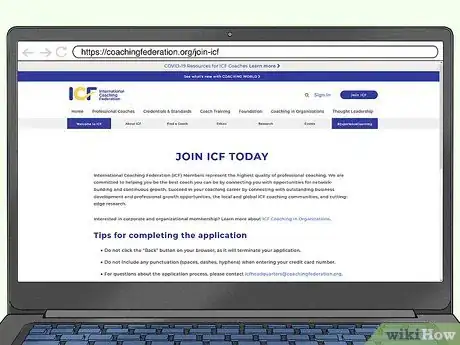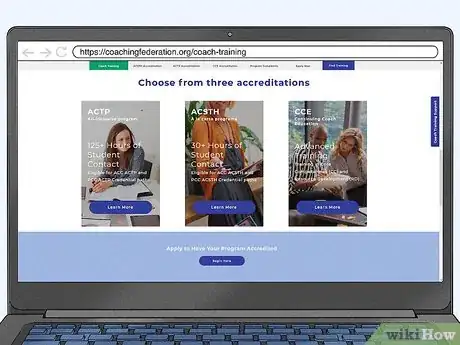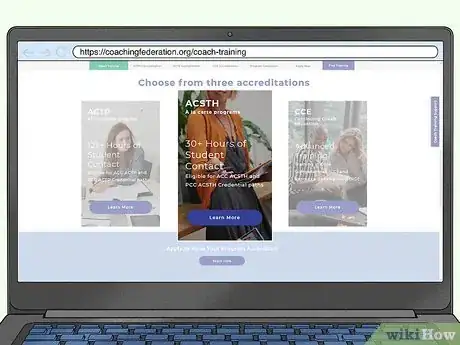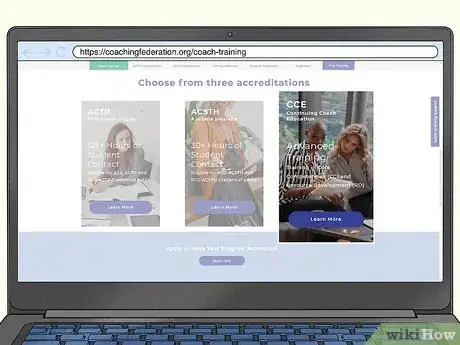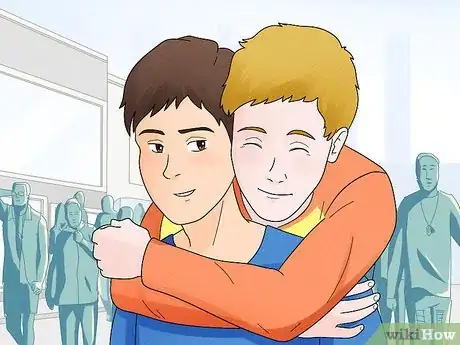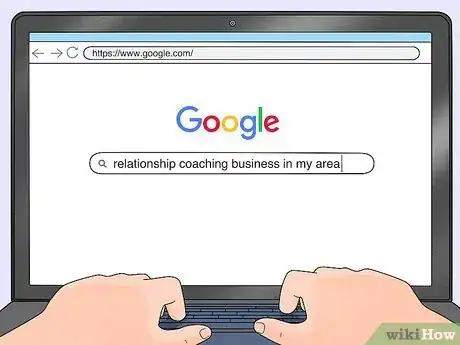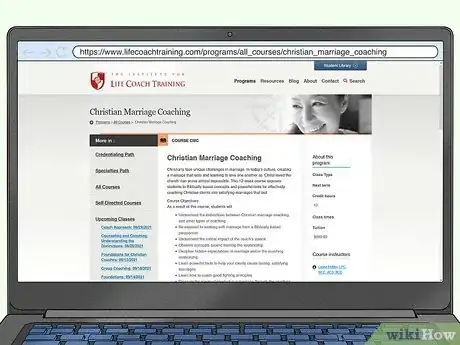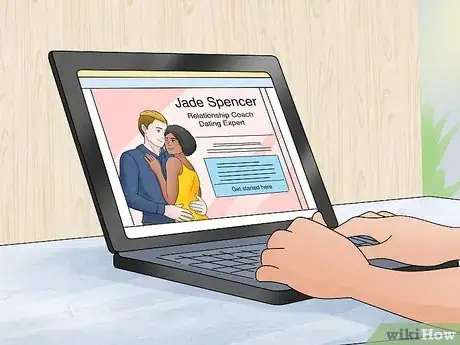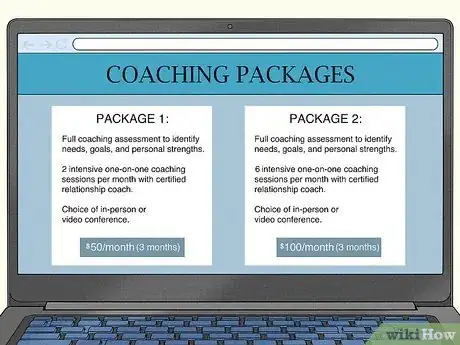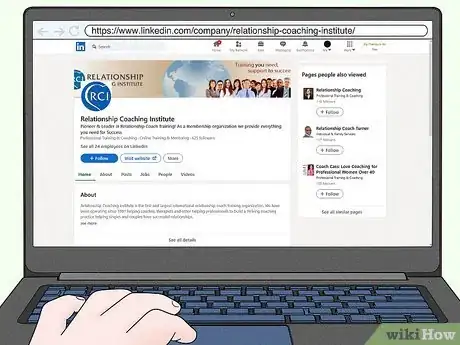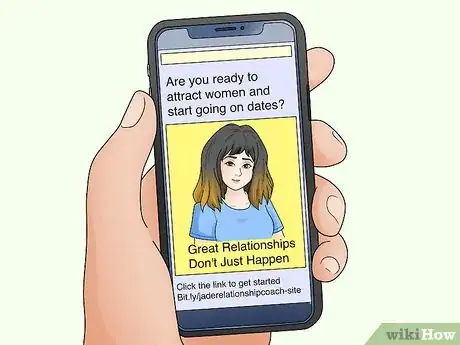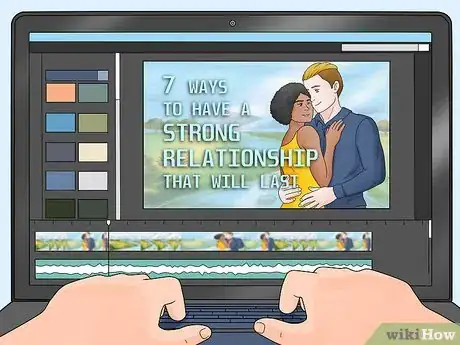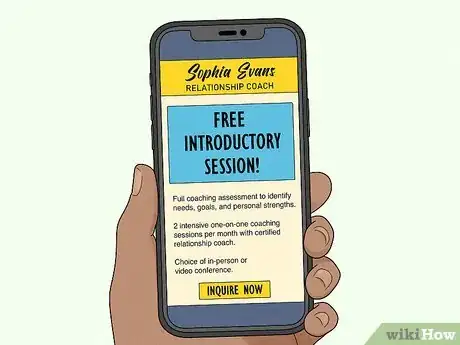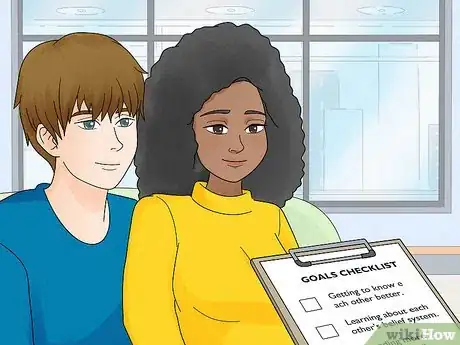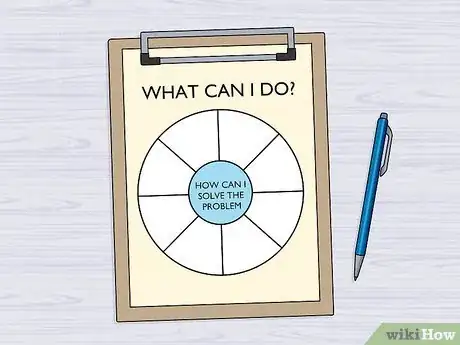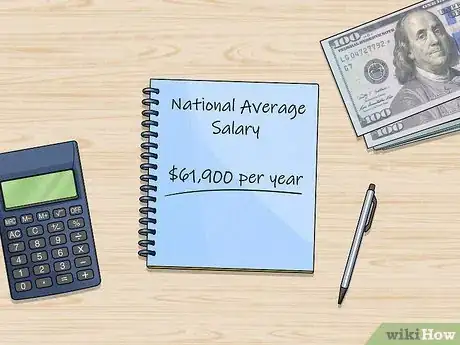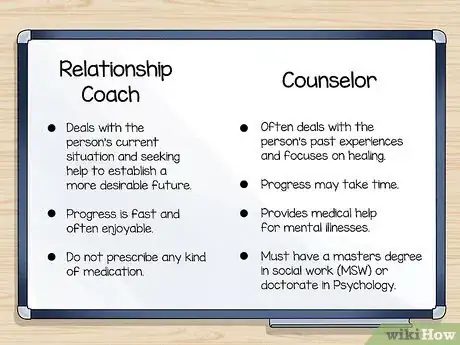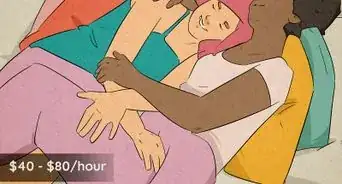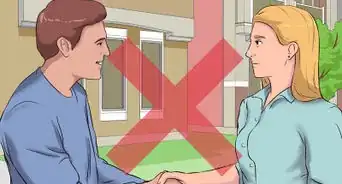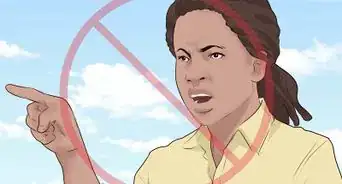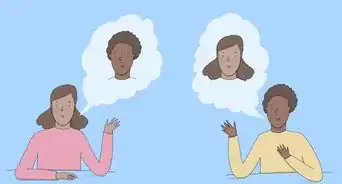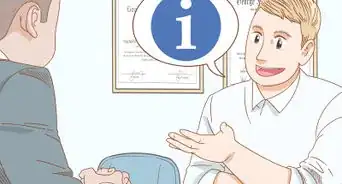This article was co-authored by Eddy Baller and by wikiHow staff writer, Kira Jan. Eddy Baller is a Dating Coach and the Owner of a dating consulting and coaching service, Conquer and Win, based in Vancouver, Canada. Coaching since 2011, Eddy specializes in confidence building, advanced social skills, and relationships. Conquer and Win helps men worldwide have the love lives they deserve. His work has been featured in The Art of Manliness, LifeHack, and POF among others.
There are 24 references cited in this article, which can be found at the bottom of the page.
wikiHow marks an article as reader-approved once it receives enough positive feedback. In this case, 100% of readers who voted found the article helpful, earning it our reader-approved status.
This article has been viewed 88,283 times.
Do you want to help people connect with each other and get through tough times? If so, you may have found your calling. As a relationship coach, you'll work to resolve conflicts while helping couples and groups build stronger interpersonal skills and emotional bonds. To help you get started on this rewarding career path, we've compiled answers to the most common questions on becoming a relationship coach.
Steps
How should you choose a training program?
-
1Enroll in an ICF “accredited” coach training program for intensive education. These programs require a minimum of 125 hours. You’ll build your coaching knowledge by learning ICF core competencies (including coach-client communication, creating coaching agreements) and ethics.[3] You’ll also get hands-on experience through real coaching sessions where you’ll be observed and get feedback. To end the program, you’ll demonstrate your knowledge with a comprehensive final exam.
- Keep your future plans in mind when you’re picking a certification program. Where will the certification be accepted? Will the program give you additional skills or align with your specialty?[4]
- You can choose training courses that cost anywhere from under $100 to courses that cost thousands of dollars.[5]
- Many programs offer payment plans. If you’re interested in a more expensive training program, you can call the institute to discuss payment options.
-
2Pick an ICF “approved” program if you’d like more flexibility in choosing classes. With this option, you won’t have to commit as much time since ICF approved programs require around 30 hours of training, along with coaching observations. Because the programs are less intensive, you’ll be able to take a more pick-and-choose approach to courses and instructors.[6]
-
3Sign up for continuing coach education (CCE) if you already have ICF credentials. To keep improving your skills, you can sign up for CCE to go through advanced coach training and learn professional development skills, like business building techniques and coaching assessments. You’ll spend about 10+ hours long in CCE courses.[7]
What type of coach should I become?
-
1To work with individuals or couples, become a dating, divorce, or marriage relationship coach. Within each of those categories, you can even pick an even narrower relationship focus based on whatever skills or experiences you can bring to the table. For instance, if you decide to become a dating relationship coach, you can specialize in LGBT relationships or helping single men.[8]
-
2Become a relationship coach at an existing coaching business to work with a team.[9] You won’t have to worry about finding clients or marketing yourself if you work for a coaching business. However, in order to work for an organization of coaches, you’ll have to go through the same training as you would to work on your own.[10]
- Once you’re certified, search for local relationship coaching businesses, treatment centers, and care homes in your area. Contact them to ask if they’re interested in hiring or contracting an additional coach. They may hire contractors as “wellness coaches” as opposed to “relationship coaches.”[11]
-
3Practice as a religiously affiliated coach to base your coaching off scripture. As a religiously affiliated coach, you can help clients operate within their relationships according to their religious and spiritual beliefs. You’ll still be able to work within a wide variety of relationship areas like marriage, dating, and family issues, but you’ll ground your work in religious teachings.[12]
- Find a religiously affiliated training program to get more experience in this specialty.[13]
How do you start a business as a relationship coach?
-
1Choose a price for each session. You can set the amount you want to charge as relationship coaching prices vary from $50-$300 per hour. As a new coach building your client list, keeping your prices on the lower end will make you more competitive in the coach market.[14]
- If you’re providing coaching to single people, you may choose to charge less than couples or families.
- You may decide to start off small with a few clients a month or each week. You can slowly build your client base and eventually work full-time.
-
2Market your business to people in your community. When you’re starting to build a client base, you can reach out to friends, family, and acquaintances to let them know you’re accepting new clients. Build a website that lists your education, qualifications, certifications, and relevant experience so people can find you online. Emphasize any of your specializations and areas of focus.[15]
- Encourage people you know to share your page and spread the word about the services you offer.
-
3Network with other relationship coaches. Meeting other people in the field can help you make professional connections and potentially grow your business. You may also find out about professional development opportunities, relationship coaching events, and other opportunities through these sites.[16]
- Use professional social media sites like LinkedIn to help meet other relationship coaches. Social media is a great way to build your brand and your business.
- You should also try to get your name listed on relationship coaching websites. Look for national directories where you can place your name so potential clients in your area can search for you.
How do you get clients as a relationship coach?
-
1Find a unique niche to set yourself apart. Whether you decide to work with millennial women or senior citizens, building a brand within a target market can help you differentiate yourself from other coaches. If you can address the specific needs of a target market (for example, helping socially anxious people get started with online dating), you’ll have an easier time finding clients.[17]
-
2Spread the word online and to people you know. Create online content (videos or social media posts) to address the specific needs and concerns of your target market. For instance, create a post offering a few tips on stress management if you’re targeting university students. Don’t be afraid to reach out to friends and family to ask them to share your content. It might take a few weeks or months to get your business off the ground, but don’t get discouraged![18]
- In addition to networking with people you know, keep placing your name on relationship coaching directories.
-
3Offer discounted rates and free introductory sessions. When you offer a free intro session, you give someone the option of meeting and talking with you to decide if you are a good fit. The introductory session will give you a chance to connect with people who are hesitant to spend money to find a relationship coach or nervous because you’re newer to the practice.[19]
- If you are struggling to gain new clients at first, offer reduced rates to your family and friends.
- To promote your new business, you could offer reduced rates to the first ten clients who sign up for coaching sessions.
- Once you start building a client list, decide how many clients you want to take on at once. You may want to focus on a few people at first, or try to get a full-time load.[20]
What do relationship coaches do?
-
1You’ll help clients identify problems within their relationships. For instance, clients will expect you to help them build a stronger marriage, start dating, or identify “roadblocks” that are getting in the way of their ability to have great relationships.[21]
- As you help clients solve problems, you’ll act as a source of support and encouragement.
EXPERT TIPEddy Baller is a Dating Coach and the Owner of a dating consulting and coaching service, Conquer and Win, based in Vancouver, Canada. Coaching since 2011, Eddy specializes in confidence building, advanced social skills, and relationships. Conquer and Win helps men worldwide have the love lives they deserve. His work has been featured in The Art of Manliness, LifeHack, and POF among others.Dating Coach
 Eddy Baller
Eddy Baller
Dating CoachConsider this path if you are passionate about helping others. Becoming a dating or relationship coach is a great career choice if you love talking to people, and especially if you enjoy helping others build their confidence and develop social skills.
-
2
-
3You can provide clients with emotional skills. Whether it’s couples mediation or one-on-one counseling, by giving people stress management techniques and coping skills, you can help them get through tough spots and conflicts.[24]
- Role-playing will be your number one tool for helping teach conflict-resolution skills, but you’ll also have to keep up with the latest coaching methodologies (like tests, assessments, and prioritizing exercises).[25]
Expert Q&A
-
QuestionHow do you become a relationship expert?
 Eddy BallerEddy Baller is a Dating Coach and the Owner of a dating consulting and coaching service, Conquer and Win, based in Vancouver, Canada. Coaching since 2011, Eddy specializes in confidence building, advanced social skills, and relationships. Conquer and Win helps men worldwide have the love lives they deserve. His work has been featured in The Art of Manliness, LifeHack, and POF among others.
Eddy BallerEddy Baller is a Dating Coach and the Owner of a dating consulting and coaching service, Conquer and Win, based in Vancouver, Canada. Coaching since 2011, Eddy specializes in confidence building, advanced social skills, and relationships. Conquer and Win helps men worldwide have the love lives they deserve. His work has been featured in The Art of Manliness, LifeHack, and POF among others.
Dating Coach Number one is a huge base of experience. You need to go out and talk to hundreds or maybe thousands of women, and men as well, every day. You need to build your confidence and develop social skills, starting a conversation every single chance you have with anybody who happens to be standing around, learning to be really observant. And another part is actually learning how to coach people well. You might want to read up on coaching techniques, see how other people do coaching, and take coaching yourself, too. And then, when you start developing programs, you need to see what actually works, so you have to be willing to do it in the long run and experiment. Because they are two very separate things: being able to talk to women and be good at it is one skill set, but actually being able to coach people and communicate well with is a wholly other skill set. So you need a big base of experience in both areas.
Number one is a huge base of experience. You need to go out and talk to hundreds or maybe thousands of women, and men as well, every day. You need to build your confidence and develop social skills, starting a conversation every single chance you have with anybody who happens to be standing around, learning to be really observant. And another part is actually learning how to coach people well. You might want to read up on coaching techniques, see how other people do coaching, and take coaching yourself, too. And then, when you start developing programs, you need to see what actually works, so you have to be willing to do it in the long run and experiment. Because they are two very separate things: being able to talk to women and be good at it is one skill set, but actually being able to coach people and communicate well with is a wholly other skill set. So you need a big base of experience in both areas.
References
- ↑ https://www.bls.gov/careeroutlook/2017/youre-a-what/life-coach.htm
- ↑ https://www.americanpsychotherapy.com/crs/
- ↑ https://coachingfederation.org/core-competencies
- ↑ https://www.youtube.com/watch?v=x7IPB_shMY8&t=239s&ab_channel=Brinya
- ↑ https://coachingfederation.org/credentials-and-standards/find-a-training-program
- ↑ https://coachingfederation.org/coach-training
- ↑ https://coachingfederation.org/credentials-and-standards/find-a-training-program
- ↑ https://www.youtube.com/watch?v=w8d_a9kIWes&t=161s&ab_channel=CourtneyLSanders
- ↑ https://www.youtube.com/watch?t=377&v=D8kX7eZ0aKE&feature=youtu.be&ab_channel=TheMarriagePlace
- ↑ https://www.youtube.com/watch?t=181&v=D8kX7eZ0aKE&feature=youtu.be&ab_channel=TheMarriagePlace
- ↑ https://www.bls.gov/careeroutlook/2017/youre-a-what/life-coach.htm
- ↑ https://www.christiancoachinstitute.com/relationship-coaching-build-strong-foundation-trust/
- ↑ https://www.lifecoachtraining.com/programs/all_courses/christian_marriage_coaching
- ↑ https://www.noomii.com/relationship-coaching
- ↑ http://www.socialworktoday.com/archive/052010p22.shtml
- ↑ http://www.socialworktoday.com/archive/052010p22.shtml
- ↑ https://www.youtube.com/watch?v=w8d_a9kIWes&t=66s&ab_channel=CourtneyLSanders
- ↑ https://www.youtube.com/watch?v=w8d_a9kIWes&t=289s&ab_channel=CourtneyLSanders
- ↑ https://www.youtube.com/watch?v=Ckacf3c3Yiw&t=348s&ab_channel=LuisaZhou
- ↑ http://www.noomii.com/relationship-coaching
- ↑ https://www.youtube.com/watch?t=42&v=WGJBhVr-B9I&feature=youtu.be&ab_channel=LoveAtFirstFight
- ↑ https://www.youtube.com/watch?t=121&v=S0HQCD-bzMU&feature=youtu.be&ab_channel=PamZapata
- ↑ http://ct.counseling.org/2008/12/counseling-vs-life-coaching-2/
- ↑ https://www.youtube.com/watch?t=1250&v=dqfeRmsijCg&feature=youtu.be&ab_channel=JaysonGaddis
- ↑ https://www.youtube.com/watch?t=81&v=D8kX7eZ0aKE&feature=youtu.be&ab_channel=TheMarriagePlace
- ↑ https://www.bls.gov/careeroutlook/2017/youre-a-what/life-coach.htm
- ↑ https://www.youtube.com/watch?v=N-MlZ81s5d4&t=62s&ab_channel=CourtneyLSanders
- ↑ https://www.bls.gov/ooh/life-physical-and-social-science/psychologists.htm#tab-4
- ↑ https://www.bls.gov/careeroutlook/2017/youre-a-what/life-coach.htm
About This Article
To become a relationship coach, you’ll need to complete a professional training course and find your first clients. Although you don’t need any specific qualifications to become a relationship coach, you should complete at least a 125-hour program approved by the International Coach Federation or another professional organization. In addition to teaching you how to coach couples, it will also give you an accreditation you can use to help market yourself. You’ll also need to use social media and online marketing to find new clients. Place your name on local relationship coaching directories so clients can find you. For more tips from our Relationship Coaching co-author, including how to specialize in different types of relationship coaching, read on!
